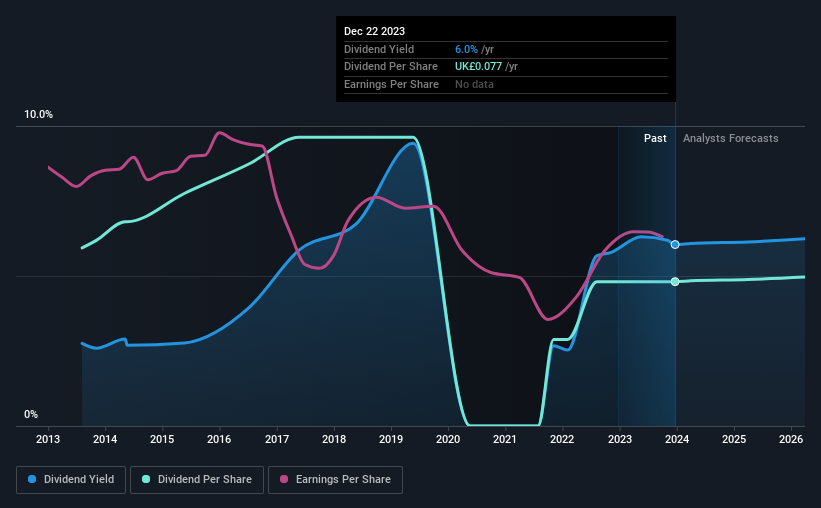BT Group plc (LON:BT.A) Will Pay A UK£0.023 Dividend In Four Days
Some investors rely on dividends for growing their wealth, and if you're one of those dividend sleuths, you might be intrigued to know that BT Group plc (LON:BT.A) is about to go ex-dividend in just 4 days. The ex-dividend date is one business day before the record date, which is the cut-off date for shareholders to be present on the company's books to be eligible for a dividend payment. The ex-dividend date is an important date to be aware of as any purchase of the stock made on or after this date might mean a late settlement that doesn't show on the record date. In other words, investors can purchase BT Group's shares before the 28th of December in order to be eligible for the dividend, which will be paid on the 2nd of February.
The company's next dividend payment will be UK£0.023 per share, and in the last 12 months, the company paid a total of UK£0.077 per share. Last year's total dividend payments show that BT Group has a trailing yield of 6.0% on the current share price of £1.273. Dividends are an important source of income to many shareholders, but the health of the business is crucial to maintaining those dividends. As a result, readers should always check whether BT Group has been able to grow its dividends, or if the dividend might be cut.
View our latest analysis for BT Group
Dividends are usually paid out of company profits, so if a company pays out more than it earned then its dividend is usually at greater risk of being cut. BT Group paid out a comfortable 41% of its profit last year. Yet cash flows are even more important than profits for assessing a dividend, so we need to see if the company generated enough cash to pay its distribution. Over the last year it paid out 68% of its free cash flow as dividends, within the usual range for most companies.
It's encouraging to see that the dividend is covered by both profit and cash flow. This generally suggests the dividend is sustainable, as long as earnings don't drop precipitously.
Click here to see the company's payout ratio, plus analyst estimates of its future dividends.

Have Earnings And Dividends Been Growing?
Companies that aren't growing their earnings can still be valuable, but it is even more important to assess the sustainability of the dividend if it looks like the company will struggle to grow. If business enters a downturn and the dividend is cut, the company could see its value fall precipitously. It's not encouraging to see that BT Group's earnings are effectively flat over the past five years. It's better than seeing them drop, certainly, but over the long term, all of the best dividend stocks are able to meaningfully grow their earnings per share.
Many investors will assess a company's dividend performance by evaluating how much the dividend payments have changed over time. BT Group has seen its dividend decline 2.1% per annum on average over the past 10 years, which is not great to see.
The Bottom Line
Should investors buy BT Group for the upcoming dividend? Its earnings per share are effectively flat in recent times. The company paid out less than half its income and more than half its cash flow as dividends to shareholders. In summary, it's hard to get excited about BT Group from a dividend perspective.
If you want to look further into BT Group, it's worth knowing the risks this business faces. To help with this, we've discovered 3 warning signs for BT Group (1 is potentially serious!) that you ought to be aware of before buying the shares.
Generally, we wouldn't recommend just buying the first dividend stock you see. Here's a curated list of interesting stocks that are strong dividend payers.
Have feedback on this article? Concerned about the content? Get in touch with us directly. Alternatively, email editorial-team (at) simplywallst.com.
This article by Simply Wall St is general in nature. We provide commentary based on historical data and analyst forecasts only using an unbiased methodology and our articles are not intended to be financial advice. It does not constitute a recommendation to buy or sell any stock, and does not take account of your objectives, or your financial situation. We aim to bring you long-term focused analysis driven by fundamental data. Note that our analysis may not factor in the latest price-sensitive company announcements or qualitative material. Simply Wall St has no position in any stocks mentioned.

 Yahoo Finance
Yahoo Finance 